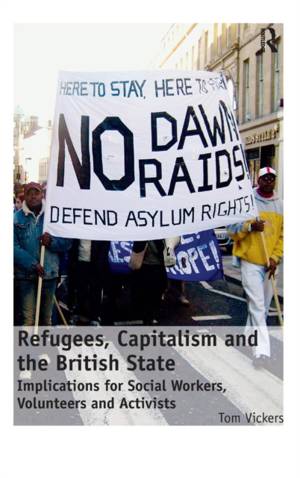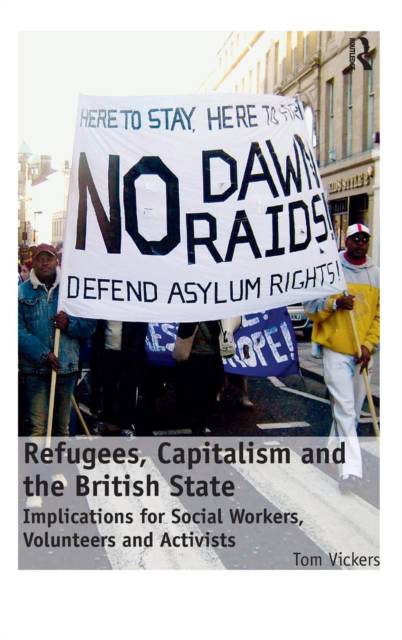
Door een staking bij bpost kan je online bestelling op dit moment iets langer onderweg zijn dan voorzien. Dringend iets nodig? Onze winkels ontvangen jou met open armen!
- Afhalen na 1 uur in een winkel met voorraad
- Gratis thuislevering in België vanaf € 30
- Ruim aanbod met 7 miljoen producten
Door een staking bij bpost kan je online bestelling op dit moment iets langer onderweg zijn dan voorzien. Dringend iets nodig? Onze winkels ontvangen jou met open armen!
- Afhalen na 1 uur in een winkel met voorraad
- Gratis thuislevering in België vanaf € 30
- Ruim aanbod met 7 miljoen producten
Zoeken
Refugees, Capitalism and the British State
Implications for Social Workers, Volunteers and Activists
Tom Vickers
Hardcover | Engels
€ 183,45
+ 366 punten
Uitvoering
Omschrijving
Today, in a period of economic crisis, public sector cuts and escalating class struggle, Marxism offers important tools for social workers and service users to understand the structures of oppression they face and devise effective means of resistance. This book uses Marxism's lost insights and reinterprets them in the current context by focussing on one particular section of the international working class - refugees and asylum seekers in Britain. Vickers' analysis demonstrates the general utility of a Marxist approach, enabling an exploration of the interplay between state policies, how these are experienced by their subjects, and how conflicts are mediated. The substantive focus of the book is twofold: to analyse the material basis of the oppression of refugees in Britain by the British state; and to examine the means by which the British state has 'managed' this oppression through the cultivation of a 'refugee relations industry', within a broader narrative of 'social capital building'. These questions demand answers if social workers and other practitioners are to successfully work with refugees and asylum seekers, and this book provides these through a detailed Marxist analysis.
Specificaties
Betrokkenen
- Auteur(s):
- Uitgeverij:
Inhoud
- Aantal bladzijden:
- 222
- Taal:
- Engels
Eigenschappen
- Productcode (EAN):
- 9781409441526
- Verschijningsdatum:
- 28/07/2012
- Uitvoering:
- Hardcover
- Formaat:
- Genaaid
- Afmetingen:
- 156 mm x 234 mm
- Gewicht:
- 489 g

Alleen bij Standaard Boekhandel
+ 366 punten op je klantenkaart van Standaard Boekhandel
Beoordelingen
We publiceren alleen reviews die voldoen aan de voorwaarden voor reviews. Bekijk onze voorwaarden voor reviews.











